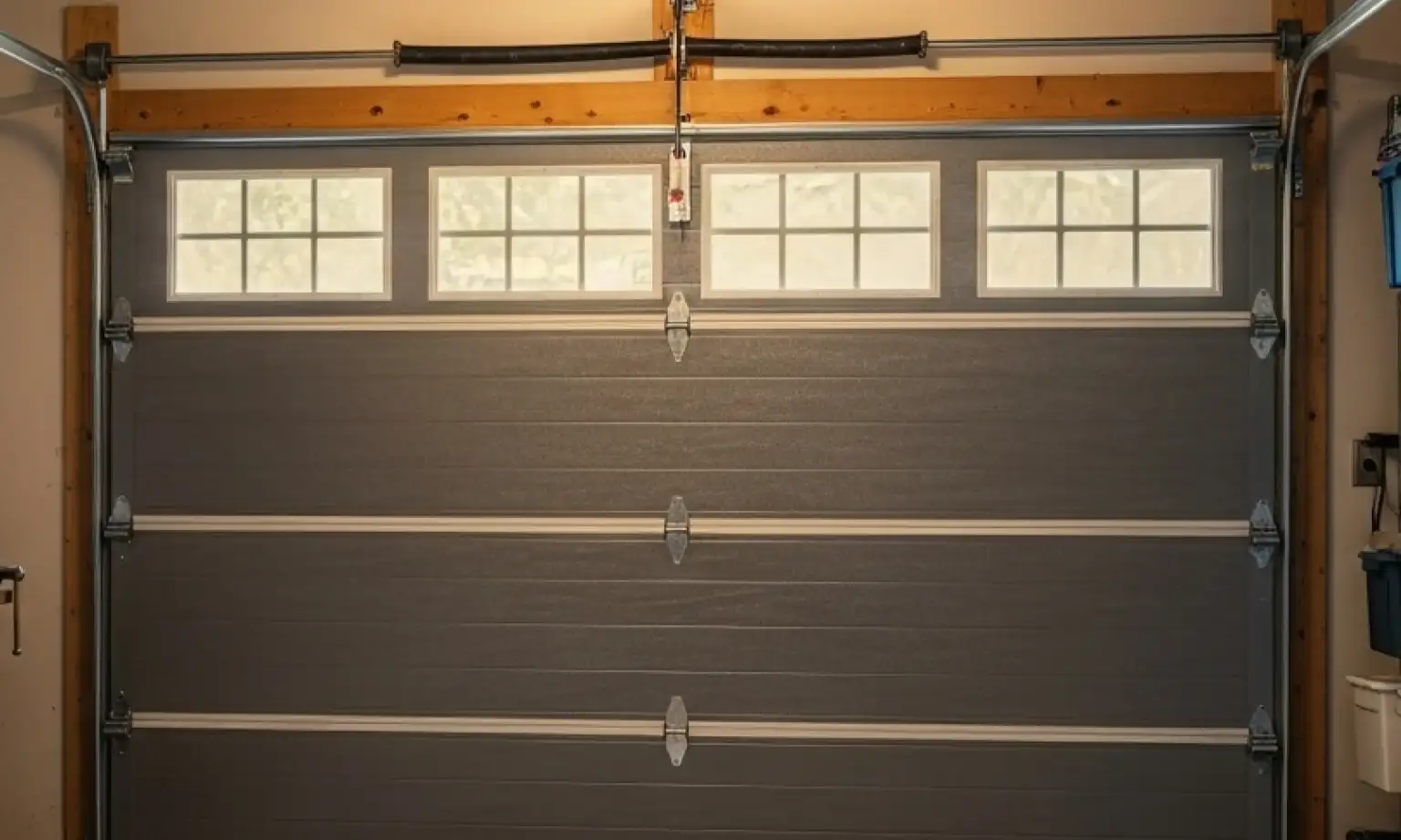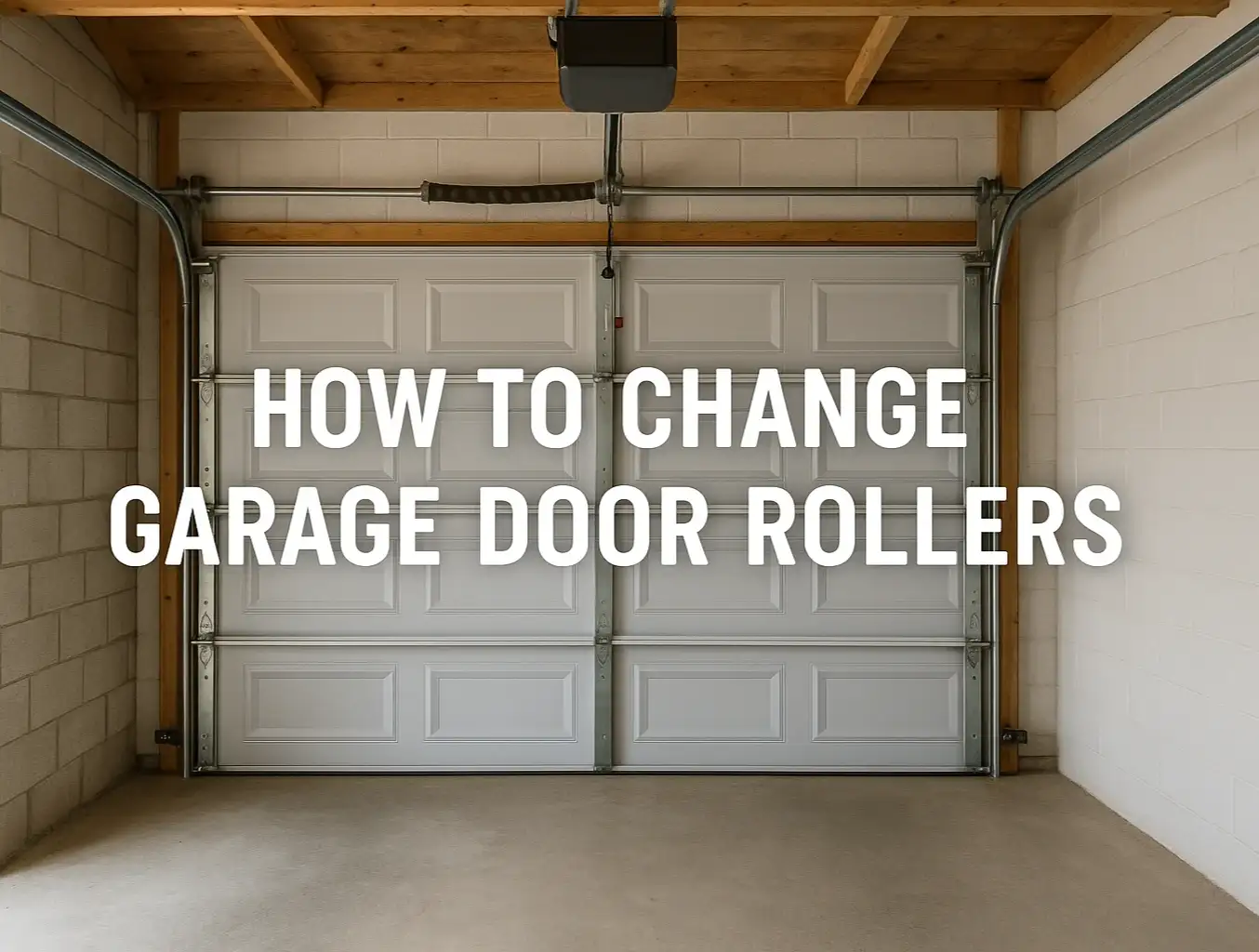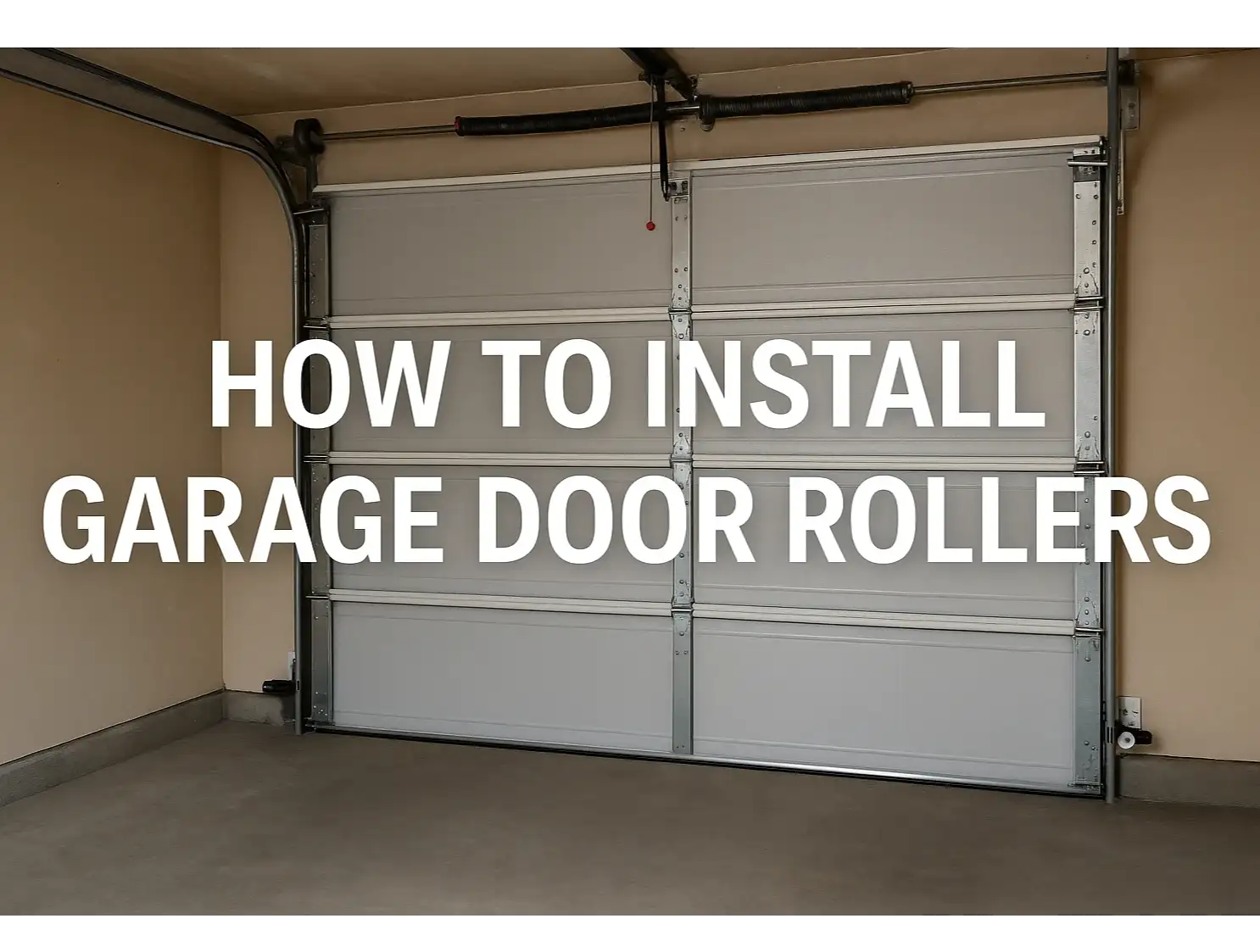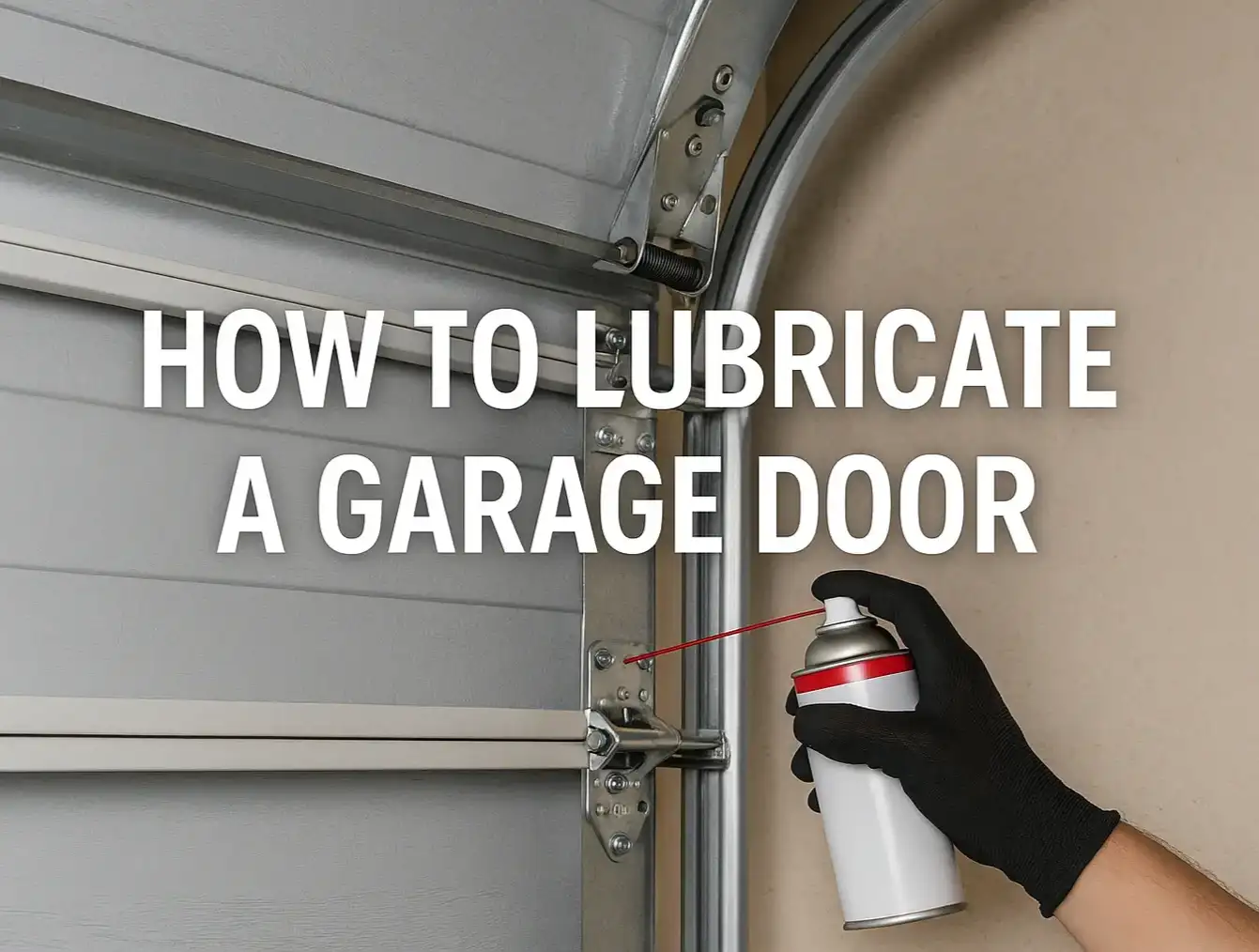How to Lubricate Your Garage Door Rollers: A 5-Step Guide
Published: Oct 30, 2025
If you’re tired of that noisy garage door screeching open every morning, it might be time to show your rollers some love. Knowing how to lubricate garage door rollers the right way can save you from costly repairs, reduce wear and tear, and help your door glide smoothly. Whether you’re a homeowner or manage commercial properties, this quick guide covers how and when to lube garage door rollers, what to use, and when it might be time to call the pros at Up & Down Garage Doors.
How Often Should You Lubricate the Rollers?
A common question we hear is: How often is enough? In most cases, twice a year is just right — once in the spring and again in the fall. That keeps things quiet and smooth, especially if your garage sees regular use.
If your area is extra dusty, humid, or you use your garage daily, you might want to do it more often. For more practical tips, check out our full guide on how often to lubricate a garage door.
Step 1. Power Down and Clean Up

Now, let’s walk through the steps to safely lube garage door rollers.
Before you touch anything, make sure your garage door is fully closed. Disconnect the opener or flip the breaker to avoid any surprises. Wipe down the rollers and surrounding tracks with a clean, dry cloth to remove dirt, dust, or old grease. A clean surface helps the garage door lubricant work more effectively.
Don’t lubricate the tracks themselves. Just keep them clean by wiping with a dry cloth or mild cleaner if buildup is present.

Step 2. Pick the Right Lubricant
Wondering what to use to lubricate a garage door? The answer matters. Avoid household products like WD-40 — it’s a degreaser and can attract dirt. Instead, use a garage door-specific lubricant like white lithium grease or a silicone-based spray. These are considered the best lubricants for garage door rollers because they reduce friction without collecting grime.
Step 3. Lubricate the Rollers Carefully
Now let’s apply the lube:
- For metal rollers: Spray the center bearing directly, turning the roller to let the grease work in.
- For nylon rollers: Only apply to the metal shaft where it meets the bracket — don’t spray the nylon wheel.
- For hinges: Lightly spray the pivot points.
- For springs: Apply a light mist across the length of the torsion spring.
Safety tip: Only spray torsion springs if you’re confident in doing so. They’re under high tension, and mishandling them can be dangerous. If unsure, call a professional.
Step 4. Work It In and Wipe It Down
Open and close the garage door manually a few times. This helps spread the lubricant evenly through all moving parts. Use a clean rag to wipe away any excess. It’s a quick step that can prevent future grime or drips from staining your floor.
Step 5. Reconnect and Test
Once everything’s clean and moving smoothly, reconnect your garage door opener. Run the door through a few cycles. If the noise is gone and motion is smooth, you’ve done it right. Still dealing with a squeaky garage door after trying everything? It might be time to get a professional inspection from a trusted team like Up & Down Garage Doors.
Common Mistakes to Avoid
- Don’t spray the entire roller assembly blindly.
- Don’t use too much lubricant — a light coating is all you need.
- Don’t forget to lubricate the hinges and spring.
- Don’t lubricate the tracks — just clean them.
Final Thoughts & When It Pays to Call a Pro
Knowing how to lubricate garage door rollers properly isn’t just about stopping a squeaky garage door — it’s about preventing long-term damage and saving money down the road. Keep your garage door running smoothly with a quick DIY every few months.
Still, if you hear grinding noises, see bent tracks, or notice your door is off-balance after lubrication, Up & Down Garage Doors offers expert garage door repair & maintenance with a friendly approach. Our team handles everything from noisy rollers to full system replacements for homes, businesses, and commercial properties across the USA.
Don’t wait until your noisy garage door gets worse. Book a service today or give us a call for fast, reliable help from Up & Down Garage Doors.
Frequently Asked Questions
What’s the best lubricant for garage door rollers?
The best lubricant for garage door rollers is either a silicone-based spray or white lithium grease. Both reduce friction and don’t attract dirt.
How often should I lubricate my garage door?
Most doors need lube about every six months. If your area is dusty, monthly inspections may be smart.
Can I use WD-40 to lube garage door rollers?
No. WD-40 is a degreaser, not a lubricant. It can dry out parts and attract grime. Use a proper garage door lubricant instead.
Why is my garage door still noisy after roller lubrication?
If your garage door is still making noise after you’ve lubricated the rollers, they might be worn out. If you prefer DIY, you can replace the garage door rollers, but only top and middle — the bottom rollers are under high tension and should only be handled by a professional.
What happens if I never lubricate my rollers?
Without regular lube, parts can grind, seize, or wear out faster — leading to expensive repairs or full garage door replacement.
You may also like


